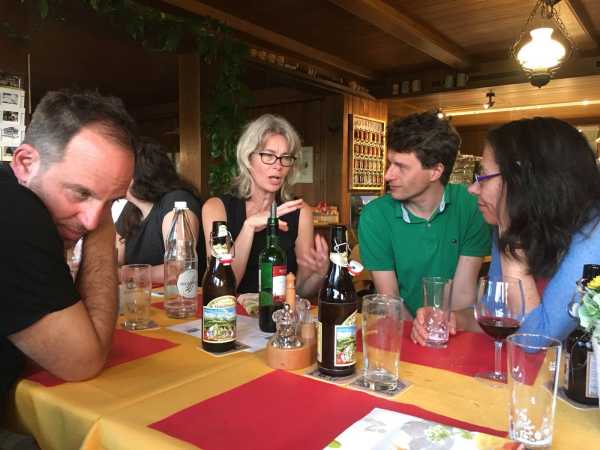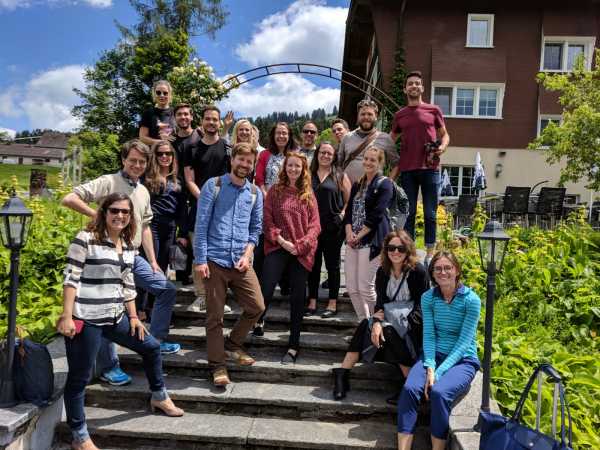ETH PhD Academy on Sustainability and Technology 2018
Sustainability at the Crossroads: Integrating Technologies, Policies and Strategies for a Sustainable Economy
To download the call for papers, please Download click here (PDF, 132 KB).
June 17 - June 22, 2018
The recent withdrawal of the US from the Paris Agreement has not only revealed the radically different views on the need to move towards a more sustainable economy but also renewed attention to the environmental pressures and social inequities of our times. During the past two decades, many renewable technologies, such as solar PV, wind power and smart buildings, have reached a high level of maturity and have become accepted instruments for addressing the sustainability challenges of the 21st century. Climate change and the search for a more sustainable economy also feature prominently in the agenda of governments. Likewise, companies are widely adopting corporate sustainability policies not only reaping the benefits of “low hanging fruits” but also creating competitive advantages by embedding sustainability into their operations. Undoubtedly, sustainability increasingly matters in technology development, public policy, and corporate strategies. Yet, policymakers and companies seeking to realize the potential of sustainability need to find ways to integrate sustainable technologies into their policies and strategies. At a time of extraordinary social and environmental change, integration is essential to solving these challenges.
This year’s academy is concerned with research on integrating technologies, policies, and strategies for a more sustainable economy. We provide a unique platform for junior researchers (PhD students and postdoctoral researchers) with a background in management, innovation studies, economics or political sciences to present their work to an audience of like-minded scholars and four international faculty with a record of accomplishment in research on sustainable technologies, policies, strategies and entrepreneurship. Participants obtain detailed feedback on their research design, theoretical approaches and methodology. In addition, we provide plenty of room for informal discussions and networking with other junior scholars and professors. Students in previous years have come from, amongst others, the Massachusetts Institute of Technology, Stanford University, the University of Michigan, the University of Cambridge, and Oxford University.
Research of the participants should focus on – but is not limited to – the following topics:
- Innovation strategies, innovation systems and institutional change in the context of sustainability
- Corporate sustainability, environmental entrepreneurship and the coevolution of industries
- Ecological change, resilience and dynamics of social-ecological systems
- Technological change and innovation policy in the context of energy, water, mobility or food
- Sustainable circular economy and implications for policies, strategies and technological change
- Technology diffusion and decision making in the field of renewable energy technologies
The ETH Academy on Sustainability and Technology will take place in a hotel in the midst of the Swiss Alps. To guarantee an intensive learning process, attendance is limited to 15 participants. Third-party funding allows us to offer a participation fee of only CHF 450 (ca. 450 USD) which covers accommodation, meals and excursions.
Please send you applications to Johannes Meuer () and include (i) a cover letter explaining your motivation, (ii) a proposal of max. 2 pages, and (iii) your CV. The deadline for application is 12 March 2018. We will send out notification of acceptance by 19 April 2018. Deadline for full paper submission (10-15 pages) is 25 May 2018. For additional information contact Johannes Meuer. We look forward to receiving your application!

Dr. Erin Baker is Professor for Mechanical and Industrial Engineering at UMass Amherst
She combines operations research methods and economics to decision making under uncertainty applied to the field of energy and the environment, with a focus on publicly-funded energy technology Research and Development portfolios in the face of climate change. Other topics include evaluating the sustainability of the electricity grid in New England as well as in developing countries, and evaluating the environmental costs and benefits of offshore wind energy.

Dr. Gail Whiteman is Professor for Sustainability in Business at Lancaster University
Her research utilises organisation theory on knowledge to analyse how a range of actors (companies, civil society, and local communities) make sense of ecological change, and how these actors transform and build resilience across scales given environmental pressures and social inequities.
Professor Whiteman is also the Professor-in-Residence at the World Business Council for Sustainable Development and was actively involved in building science-based targets including those for a future low-carbon economy. She is a Research Fellow of the Cambridge Centre for Climate Change Mitigation Research (4CMR), a Steering Committee member of the Future Earth Forum, and is an Executive Board member of the Resilience Alliance, an international research organisation of scientists and practitioners who collaborate to explore the dynamics of social-ecological systems.

Dr. Jeffrey York is Professor for Strategy, Entrepreneurship and Operations at the University of Colorado Boulder
Professor York’s teaching and research are focused on environmental entrepreneurship, the simultaneous creation of ecological and economic goods. Professor York work has published research in journals such as the Academy of Management Review, Academy of Management Journal, Journal of Business Venturing, Organization Science, and Strategic Management Journal. His research has won numerous awards including the Alliance for Research on Corporate Sustainability (ARCS) Sustainability Scholar Award, the Academy of Management Organizations and the Natural Environment (ONE) Emerging Scholar Award, and the NYU-Stern Conference on Social Entrepreneurship Best Paper Award. He is a Field Editor for the Journal of Business Venturing and member of the Editorial Board of the Academy of Management Journal, Entrepreneurship Theory & Practice, and Strategic Entrepreneurship Journal.

Dr. Volker Hoffmann is full professor for sustainability and technology at the Department of Management, Technology, and Economics of ETH Zurich.
He received a diploma in chemical engineering from ETH Zurich in 1997 and a diploma in business administration from the University of Hagen, Germany, in 1999. In 1996/97 and 1999/2000 he worked as a visiting scholar and scientist at MIT where he investigated uncertainty propagation in large scale process models for the chemical industry (group of Gregory J. McRae). In 2001, he obtained his Ph.D. from ETH Zurich with a thesis on multi-objective decision making under uncertainty in chemical process design (group of Konrad Hungerbühler). Before joining the faculty of ETH Zurich in 2004, he was a project manager at McKinsey & Company where he worked in the chemical and electricity industry. He focused on strategy development for European utility companies, especially in the light of upcoming greenhouse gas regulations. During his career, Volker Hoffmann received several scholarships and awards including a German National Academic Foundation Scholarship (1994-97), an Ernest-Solvay-Scholarship (1996/97), and an Exchange Fellow Scholarship of the Alliance for Global Sustainability (1999/2000).
Volker Hoffmann's research at ETH Zurich centers on corporate strategies with respect to climate change, with a focus on climate policy, energy policy, and innovation. Recent research results are being published in journals such as the Journal of Management Studies, Long Range Planning, the California Management Review, Research Policy, Climate Policy, Energy Policy, Global Environmental Change, the Journal of Industrial Ecology, Policy Sciences, Environmental Science & Policy, Energy Economics, the European Management Journal, Business Strategy & the Environment and Ecological Economics.






